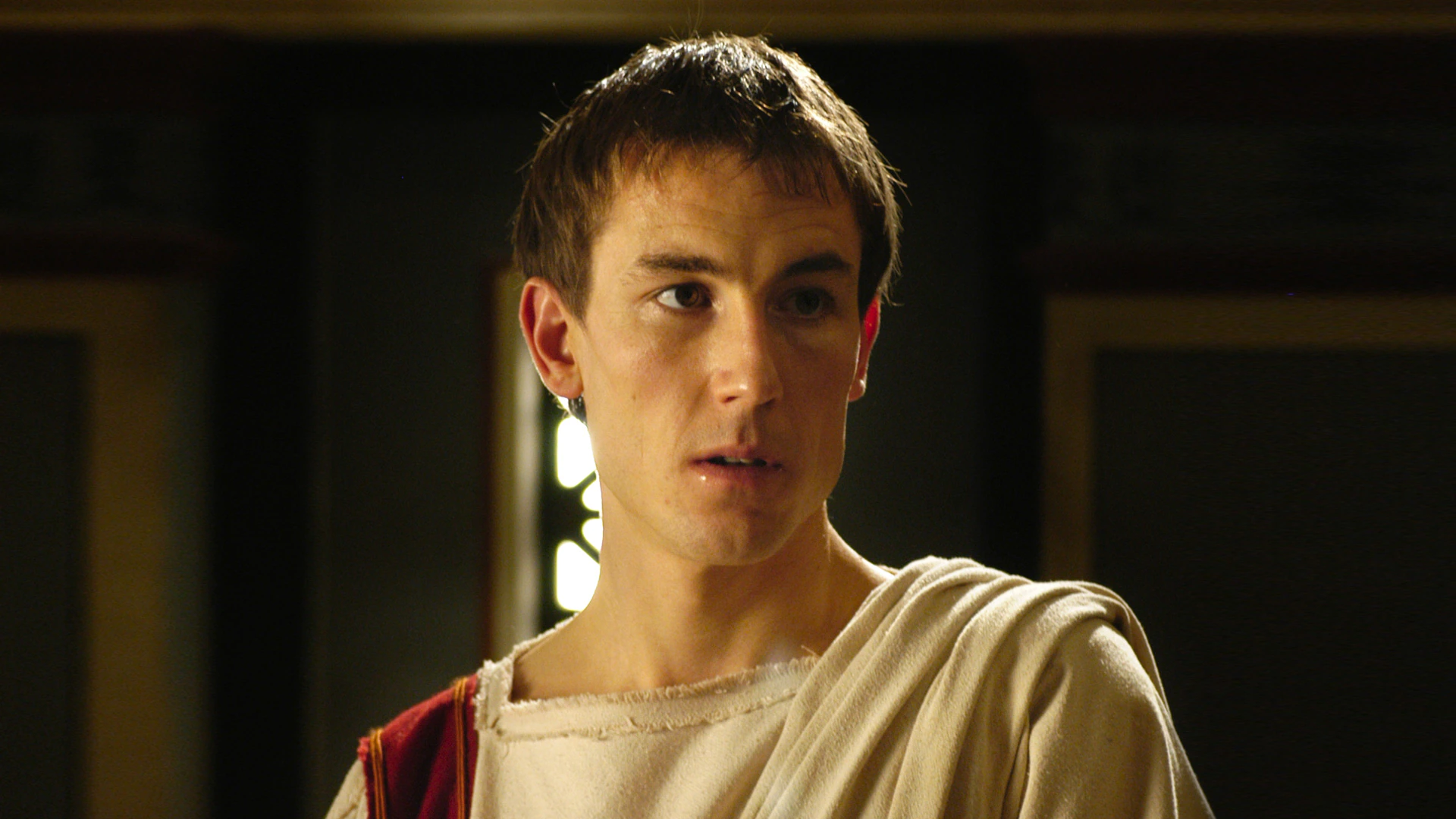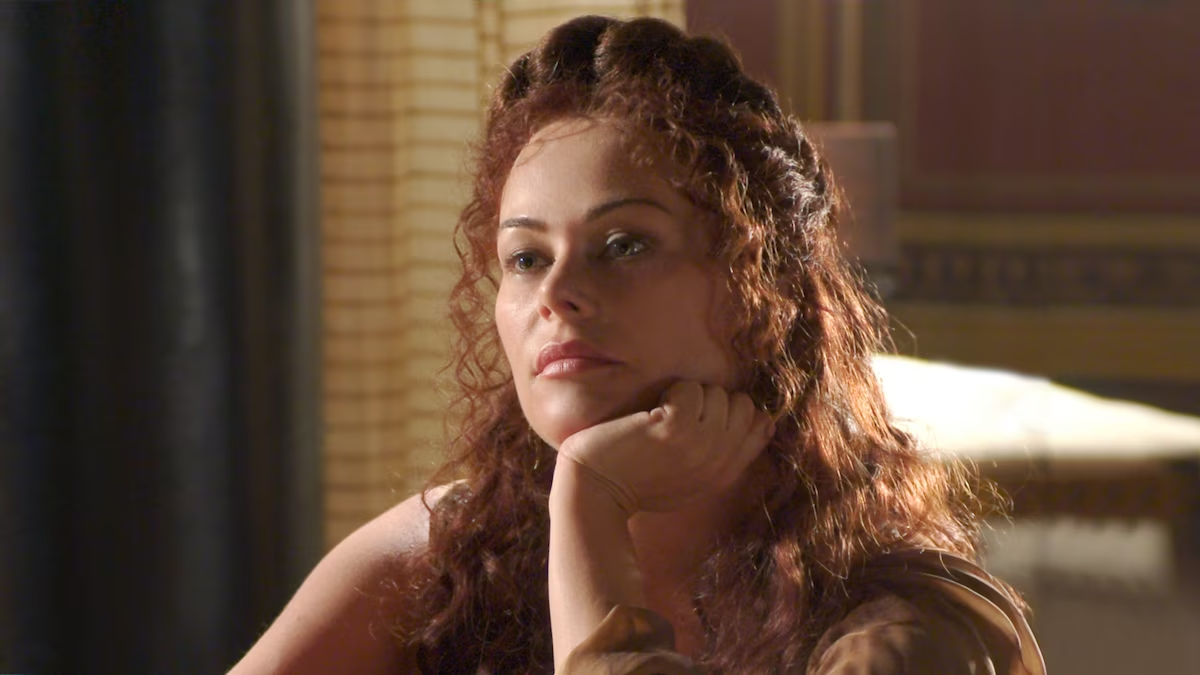HBO's Rome
- Joe

- Sep 28, 2023
- 5 min read
Recently I (re)watched s1 of HBO's Rome and mostly decided against writing about it. Then, for a few days at least, the online discourse was all about how men think about the Roman Empire with regularity, if not constantly. This was my favorite tidbit that came from that.
My wife doesn't need to ask. (C'mon, we're still living in the shadow of the Romans, it was the most dominant and important empire/culture that ever existed, Rome and America will always be comparable, etc, etc.)
Anyway, now that Rome is both relevant and current again, and I just watched a show about it (not quite the Empire yet but you'll forgive me), I kinda have to do this, right?

HBO's Rome originally ran during 2005-2007. It was never the biggest show for the network, as it ran concurrently to The Soprano's (1999-2007) and The Wire (2002-2008), to give two examples (HBO just operates on another level, wow). It's considerably shorter than those and many others as well, at only 22 episodes total (12 in s1, 10 in s2). What I enjoy about it more than anything is, naturally, the historical aspect, as it portrays most of the major events that take Rome from a republic to an empire in the first century BC.
Season one starts with Julius Caesar, consul of Rome, wrapping up his subjugation of Gaul (modern day France). Political machinations, those of his own doing and those of his peer and rival, another general named Pompey, result in Caesar's crossing of the Rubicon and the bringing of his army to Rome proper. This kicked off Caesar's Civil War, during which Pompey and most of the Senate (including Cicero and Cato the Younger) flee and assemble their own army. Caesar wins, begins a massive overhaul in Rome and is declared dictator for life. Eventually a group of Senators conspire and successfully assassinate him, on the Ides of March, on the floor of the Senate. This is how season one ends.
Season two, then, covers the rest before the Empire begins. Mark Antony, one of Caesar's top generals and supporters, along with Octavian, Caesar's grandnephew and adopted heir, defeat the tyrannicides (including Brutus and Cassius) before turning on one another. Following the battle of Actium, in 31 BC in Greece, Antony and his wife Cleopatra, the famous last Ptolemeic ruler of Egypt, commit suicide, leaving Octavian as the sole ultimate victor of these protracted wars. He becomes the first Roman Emperor and takes a new name, Augustus. There are a ton of real events portrayed and a lot can be learned, it's certainly helped me remember people, places and more for a critical time in the history of the west.
But simply watching the important historical players in all this is not how the show works. Instead we primarily closely follow two fictional characters not from the Roman elite, two every-men. The first, Lucius Vorenus (Kevin McKidd), is an officer, a centurion, in Caesar's army in Gaul. Vorenus takes his job, his Roman values and everything else very seriously, and he's a hard, frustrating man. And yet I see parts of myself in him over and over. The second, Titus Pullo (Ray Stevenson, RIP), is a low ranking soldier, a legionnaire, under Vorenus. Pullo is a bit fast and loose in life and it frequently gets him into trouble, but he's loyal and jovial and extremely likable most of the time.
What takes this version of the story over the top is not only seeing how these two characters react to the major twists and turns, but how they directly influence them. This is not historically accurate, to be sure, but it's fun and thought-provoking. A personal spat between Pullo and another Roman is taken as an attack on Mark Antony, the justification for Caesar initially coming to Rome with the army. Pullo winds up in possession of the entire Roman treasury of gold, something Pompey attempted to take with him as well as keep away from Caesar. Vorenus and Pullo capture Pompey after fleeing the battle of Pharsalus, and let him continue on to Egypt. Due to the events mentioned and others, at this point even Caesar himself can't punish them and notes that the gods must have the two in their favor. In Egypt Vorenus and Pullo are sent to save Cleopatra, who's seen as a threat to her brother the Pharaoh, and it's later heavily implied that Caesarion is actually the secret offspring of Pullo, not Caesar. Back in Rome Vorenus is suddenly elevated in status and luring him away from the Senate and Caesar is a massive priority for the conspirators. They're involved in so much along the way, and I think this helps with remembering what was real.
A couple other of the characters need mentioning. Brutus, of Shakespeare fame (Et tu, Brute?) is the most complex portrayal on the show. He has strong principles, namely a fierce loyalty to the Republic and the Senate, and also a strong, long-lasting personal friendship with Caesar. At multiple stages along the way he's torn up by what he feels he must do and afterward struggles with self-loathing. It's perhaps the most fascinating suggestion of the entire show that his ultimate betrayal is largely spurred by his mother, who is more obsessed with getting a jilted lover's revenge than saving the Republic from a rising tyrant. On the other end of these two great Roman families is Atia of the Julii. Niece of Caesar and mother of Octavian (later Augustus), here she's an amoral, ruthless schemer. Even though she's completely awful frequently she's the most interesting character we see, in addition to being the connecting thread to everyone involved. In the end her over-the-top pushing of Brutus' mother, it's quite a rivalry, plays a huge part in Caesar's death.
Before I go I need to mention one last thing. This show is absolutely well done in how it tells the story of the fall of the Republic, with Caesar's rise and fall and more, and even how Roman life in this period would've looked. The production value is off the charts, as should be expected from HBO. But it's for a few reasons very hard to watch and that's why I hemmed and hawed with writing about it. They were clearly going for shock value early on, the sex is highly graphic, the pagan religious ceremonies are extremely bloody, etc. This, I think, is at least partially to hold nothing back in presenting life during this era in Rome. But it was also because this is HBO and they wanted to push boundaries. The first few episodes are the worst and then it (mostly) settles in a little bit. I'm largely adding this comment because I wanted to show this to my wife for the intrigue and history, because it's great! Those first few episodes, though, were rough and made me feel gross too, this all is starting to bother me more than it used to. It's not exactly an uplifting story either, whether you're looking at our lowly main characters or the big boys with famous names. Still, there's a lot to like along the way. Perhaps the best comparison is this, if you were a fan of Game of Thrones and want to see something like that from the real-life past, you may love this.
And now you'll all be thinking about Rome.







Comments